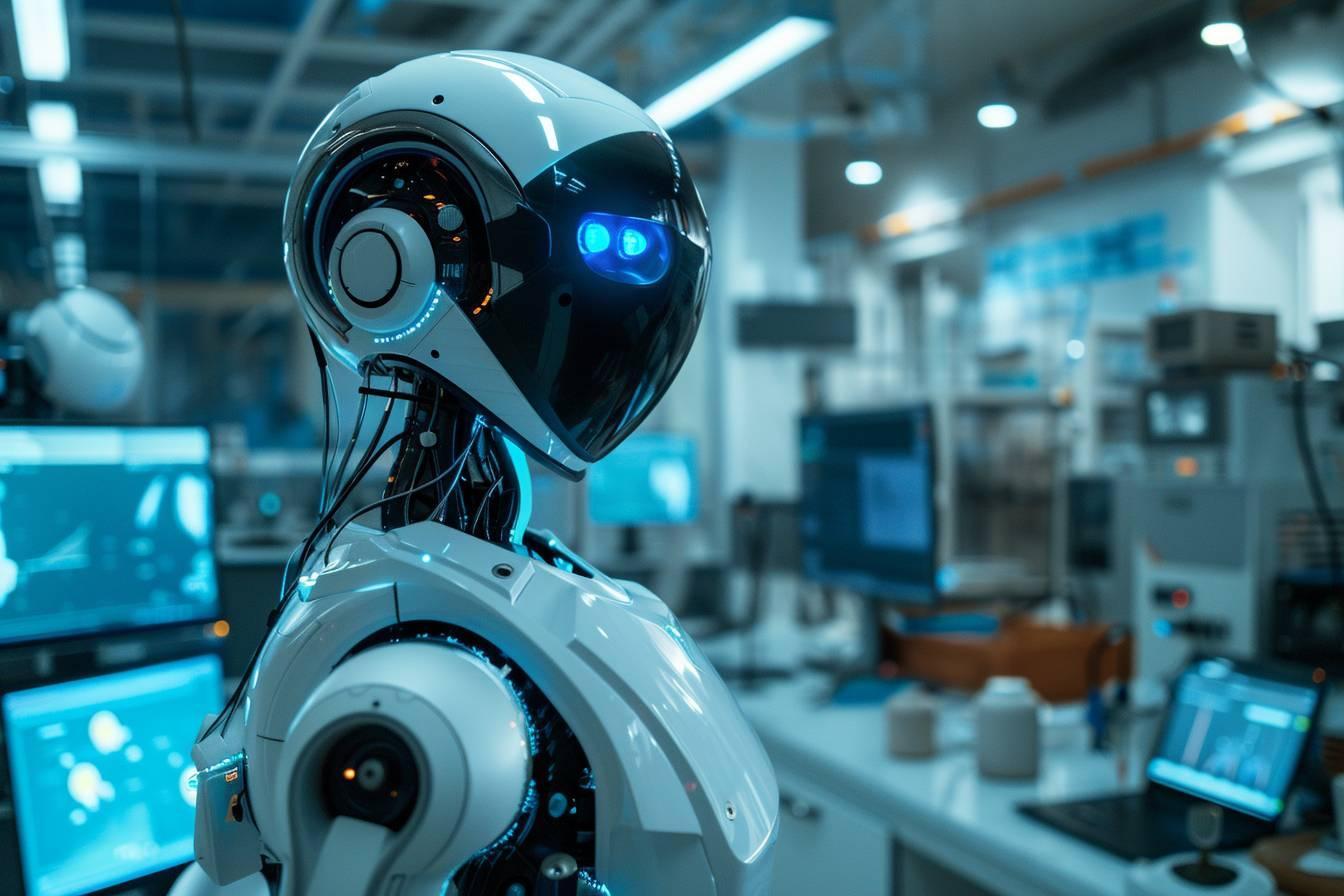Artificial intelligence has undergone a meteoric rise in recent years, radically transforming the way we interact with machines. Many players in the technology sector are talking about an inflection point in the development of AI, marking an unprecedented acceleration in its capabilities and adoption.
The AI inflection point: a historic turning point
The expression “inflection point” has become ubiquitous in the discourse of tech giants to describe the current state of artificial intelligence. This term, borrowed from mathematics, illustrates a radical change in the trajectory of AI. Microsoft, for example, compares the importance of the year 2023 for AI to that of 1995 for the Internet or 2007 for smartphones.
This inflection manifests itself in a series of major advances:
- the emergence of sophisticated language models such as ChatGPT
- Spectacular progress in natural language processing
- Continuous improvement in visual and speech recognition systems
- The growing integration of AI in various industrial sectors
These advances have been made possible by an exponential increase in available computing power. According to OpenAI, since 2012, the processing capacity required to train AI models has been doubling every 3 to 4 months, a dizzying pace that is fuelling this technological revolution.
Constantly evolving computing power
The race for computing power is central to this inflection in the AI field. Tech companies are investing massively in the development of specialized processors and supercomputers dedicated to artificial intelligence. This quest for performance is reflected in some impressive figures:
| Year | Computing power (in flops) |
|---|---|
| 2012 | 10^15 (petaflops) |
| 2018 | 10^18 (exaflops) |
| Projected 2025 | 10^21 (zettaflops) |
This rapid increase in computing power is driving ever more complex and powerful AI models. NVIDIA, leader in the design of graphics processors used for AI, regularly underlines the importance of this exponential growth at its conferences and financial announcements.

Massive adoption of AI by businesses
AI’s inflection point is not limited to technological advances, it is also characterized by massive adoption within enterprises. IBM Consulting and AWS are seeing a widespread awareness of the importance of machine learning in the business world. This trend can be observed in various sectors:
- Asset management, where AI optimizes investment strategies
- The pharmaceutical industry, where AI is being used to accelerate the discovery of new drugs
- E-commerce, with increasingly precise recommendation systems
- Automotive, where AI plays a crucial role in the development of autonomous vehicles
The COVID-19 pandemic has actedas a gas pedal in this adoption process. The need to rapidly digitize many aspects of the economy has pushed companies to integrate AI solutions faster than expected, providing an unexpected catalyst for this technological revolution.
The ethical and societal challenges of AI
While the inflection of AI opens up exciting prospects, it also raises numerous ethical and societal questions. Stanford’s AI100 report warns of the potential risks of large-scale application of artificial intelligence:
- Protection of privacy in the face of increasingly intrusive systems
- Algorithmic biases that could lead to discrimination
- Impact on employment and the need to rethink vocational training
- Liability issues in the event of decisions taken by AIs
These issues call for in-depth reflection on the ethical and legal framework needed to frame the development of AI. Initiatives such as the appointment of Secretaries of State in charge of Artificial Intelligence in certain countries testify to governments’ growing awareness of these challenges.
Finally, the inflection of AI marks a decisive turning point in the history of technology. Driven by ever-increasing computing power and mass adoption by businesses, this revolution promises to profoundly transform our societies. However, for this transformation to be beneficial, it is essential to accompany these technological advances with in-depth ethical and societal reflection, thus guaranteeing the responsible development of artificial intelligence.


